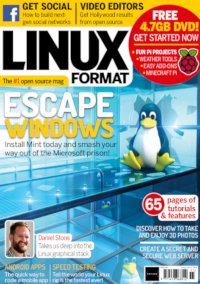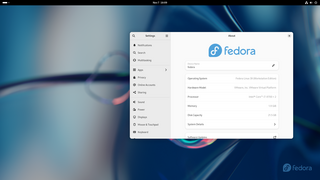
Linus Benedict Torvalds is a Finnish-American software engineer who is the creator and lead developer of the Linux kernel. He also created the distributed version control system Git.
Slashdot is a social news website that originally billed itself as "News for Nerds. Stuff that Matters". It features news stories on science, technology, and politics that are submitted and evaluated by site users and editors. Each story has a comments section where users can add online comments.

Nils Ole Hilmer Torvalds is a Finnish politician who has been a Member of the European Parliament (MEP) since 2012. He is a member of the Swedish People's Party of Finland, part of the Alliance of Liberals and Democrats for Europe.

Daniel Julius Bernstein is an American mathematician, cryptologist, and computer scientist. He is a visiting professor at CASA at Ruhr University Bochum, as well as a research professor of Computer Science at the University of Illinois at Chicago. Before this, he was a visiting professor in the department of mathematics and computer science at the Eindhoven University of Technology.

Linux Magazine is an international magazine for Linux software enthusiasts and professionals. It is published by the former Linux New Media division of the German media company Medialinx AG.

Jane was an American magazine created to appeal to the women who grew up reading Sassy magazine; Jane Pratt was the founding editor of each. Its original target audience was aged 18–34, and was designed to appeal to women who did not like the typical women's magazine format. Pratt originally intended the magazine to be named Betty, but she was voted down by everyone else involved in the making of the magazine.
Condé Nast is a global mass media company founded in 1909 by Condé Montrose Nast (1873–1942) and owned by Advance Publications. Its headquarters are located at One World Trade Center in the Financial District of Lower Manhattan.

Linux Format is the UK's first Linux-specific magazine, and as of 2013 was the best-selling Linux title in the UK. It is also exported to many countries worldwide. It is published by Future plc. Linux Format is commonly abbreviated to LXF, and issues are referred to with LXF as a prefix followed by the issue number.

LWN.net is a computing webzine with an emphasis on free software and software for Linux and other Unix-like operating systems. It consists of a weekly issue, separate stories which are published most days, and threaded discussion attached to every story. Most news published daily are short summaries of articles published elsewhere, and are free to all viewers. Original articles are usually published weekly on Thursdays and are available only to subscribers for two weeks, after which they become free as well. LWN.net is part of Eklektix, Inc.

David "Doc" Searls, is an American journalist, columnist, and a widely read blogger. He is the host of FLOSS Weekly, a free and open-source software (FLOSS) themed netcast from the TWiT Network, a co-author of The Cluetrain Manifesto, author of The Intention Economy: When Customers Take Charge, Editor-in-Chief of Linux Journal, a fellow at the Center for Information Technology & Society (CITS) at the University of California, Santa Barbara, an alumnus fellow (2006–2010) of the Berkman Center for Internet & Society at Harvard University, and co-host of the Reality 2.0 Podcast.
AppImage is an open-source format for distributing portable software on Linux. It aims to allow the installation of binary software independently of specific Linux distributions, a concept often referred to as upstream packaging. As a result, one AppImage can be installed and run across Ubuntu, Arch Linux, and Red Hat Enterprise Linux without needing to use different files. It aims to be a format that's self-contained, rootless, and independent of the underlying Linux distribution.

The Tanenbaum–Torvalds debate was a written debate between Andrew S. Tanenbaum and Linus Torvalds, regarding the Linux kernel and kernel architecture in general. Tanenbaum, the creator of Minix, began the debate in 1992 on the Usenet discussion group comp.os.minix, arguing that microkernels are superior to monolithic kernels and therefore Linux was, even in 1992, obsolete. The debate has sometimes been considered a flame war.
Vendor relationship management (VRM) is a category of business activity made possible by software tools that aim to provide customers with both independence from vendors and better means for engaging with vendors. These same tools can also apply to individuals' relations with other institutions and organizations.

Fedora Linux is a Linux distribution developed by the Fedora Project. It was originally developed in 2003 as a continuation of the Red Hat Linux project. It contains software distributed under various free and open-source licenses and aims to be on the leading edge of open-source technologies. It is now the upstream source for CentOS Stream and Red Hat Enterprise Linux.

Tux is a penguin character and the official brand character of the Linux kernel. Originally created as an entry to a Linux logo competition, Tux is the most commonly used icon for Linux, although different Linux distributions depict Tux in various styles. The character is used in many other Linux programs and as a general symbol of Linux.

The Linux kernel is a free and open-source, monolithic, modular, multitasking, Unix-like operating system kernel. It was originally written in 1991 by Linus Torvalds for his i386-based PC, and it was soon adopted as the kernel for the GNU operating system, which was written to be a free (libre) replacement for Unix.
Penske Media Corporation is an American mass media, publishing, and information services company based in Los Angeles and New York City. It publishes more than 20 digital and print brands, including Variety, Rolling Stone, Women's Wear Daily, Deadline Hollywood, Billboard, The Hollywood Reporter, Boy Genius Report, Robb Report, Artforum, ARTNews, and others. PMC's Chairman and CEO since founding is Jay Penske.

Tails, or "The Amnesic Incognito Live System", is a security-focused Debian-based Linux distribution aimed at preserving Internet privacy and anonymity. It connects to the Internet exclusively through the anonymity network Tor. The system is designed to be booted as a live DVD or live USB and never writes to the hard drive or SSD, leaving no digital footprint on the machine unless explicitly told to do so. It can also be run as a virtual machine, with some additional security risks.

In April 2012, Doc Searls' book The Intention Economy: When Customers Take Charge was published. Searls coined the term intention economy in a March 2006 article for Linux Journal. He wrote: "The Intention Economy grows around buyers, not sellers. It leverages the simple fact that buyers are the first source of money, and that they come ready-made. You don't need advertising to make them."

XKeyscore is a secret computer system used by the United States National Security Agency (NSA) for searching and analyzing global Internet data, which it collects in real time. The NSA has shared XKeyscore with other intelligence agencies, including the Australian Signals Directorate, Canada's Communications Security Establishment, New Zealand's Government Communications Security Bureau, Britain's Government Communications Headquarters, Japan's Defense Intelligence Headquarters, and Germany's Bundesnachrichtendienst.














